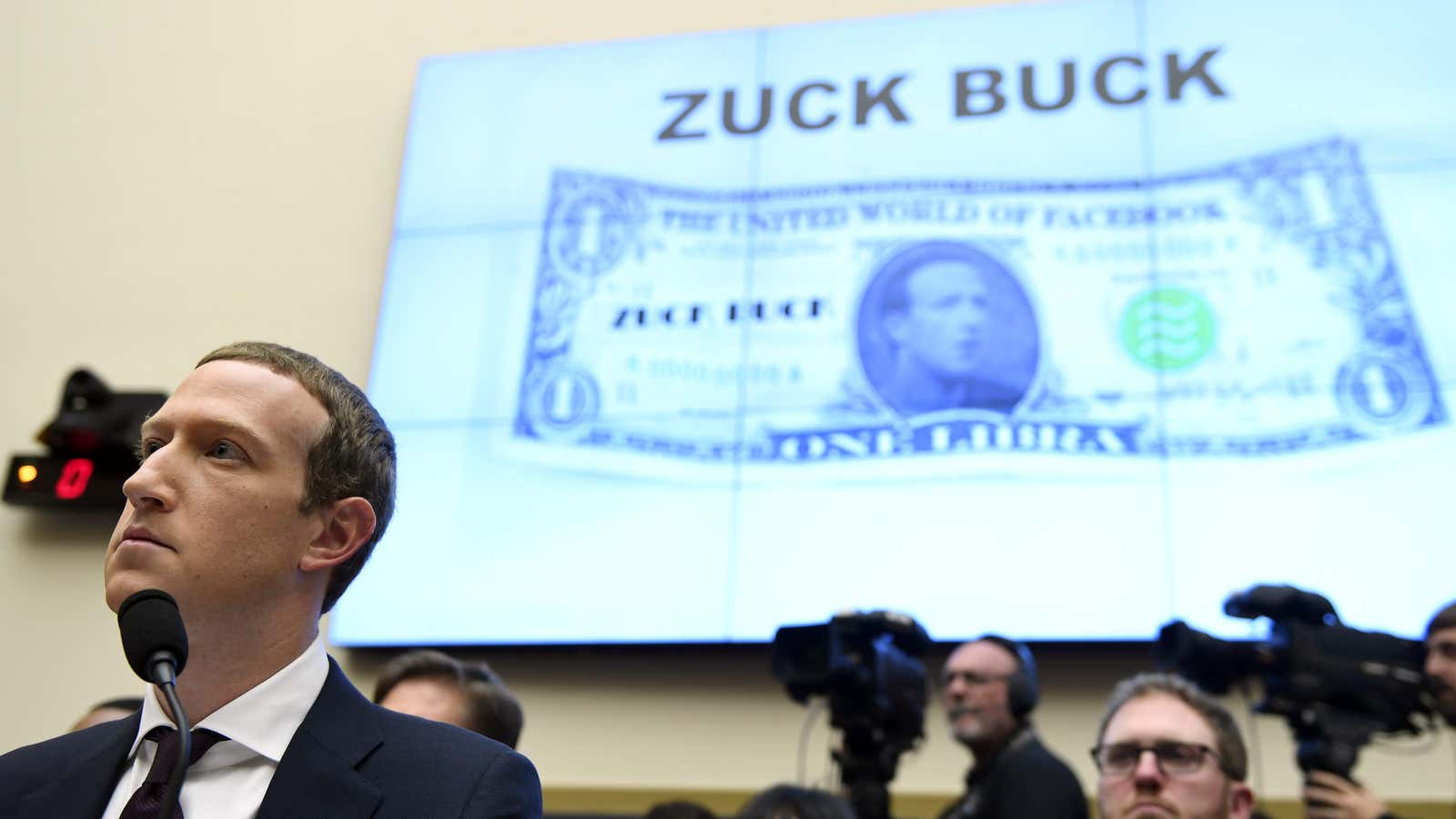Facebook announced it would donate money to researchers studying misinformation on its platform. The thing is, the donation is teeny when compared to the scale of the problem and Facebook’s enormous coffers: $2 million, or 0.01% of its revenue just for the last quarter of 2019.
As several observers and critics noted, the sum just seems like a handful out of the company’s petty cash jar:
What’s more, according to the call for applications, researchers actually won’t receive any data from the company to conduct their research: “No data (Facebook, Messenger, Instagram, WhatsApp, etc.) will be provided to award recipients. Any data collected by research teams must comply with Facebook’s (or other companies’) terms and policies. Please be aware that Facebook does not allow the automated scraping of information from our platforms.”
Misinformation is arguably the biggest problem facing the social networking giant, which often touts that it devotes significant resources to combatting harmful information, such as staffing content moderation teams and designing AI to catch it before it spreads. But the company falls short when it comes to helping independent experts assess the issue.
It’s not an easy task. Facebook must balance privacy concerns with giving researchers useful information. But it is overpromising and underdelivering, and researchers say they can’t effectively study misinformation with what they are getting. Meanwhile, the problem is getting worse, not better.
In October, the company released to researchers a cache of links that had been shared publicly on Facebook more than 100 times between 2017 and 2019. But the trove came 1.5 years after Facebook’s initial pledge to provide academics with data, and is a fraction of what was initially promised.
“As we note in the blog post, this program is part of a much larger company investment in addressing misinformation and just one of the many ways we support academic research on these issues,” said Facebook spokesperson Lauren Svensson.
This post has been updated with comment from Facebook.
